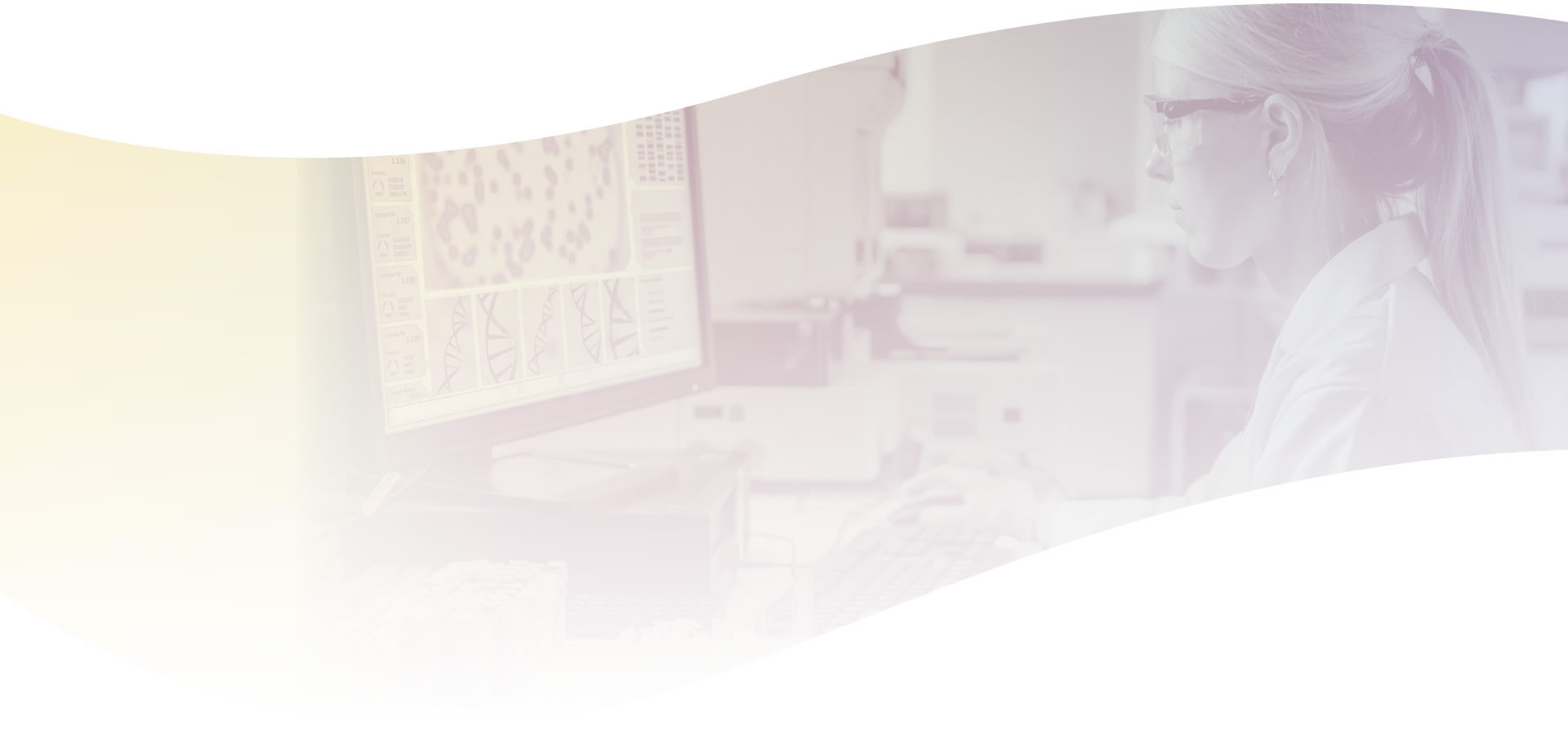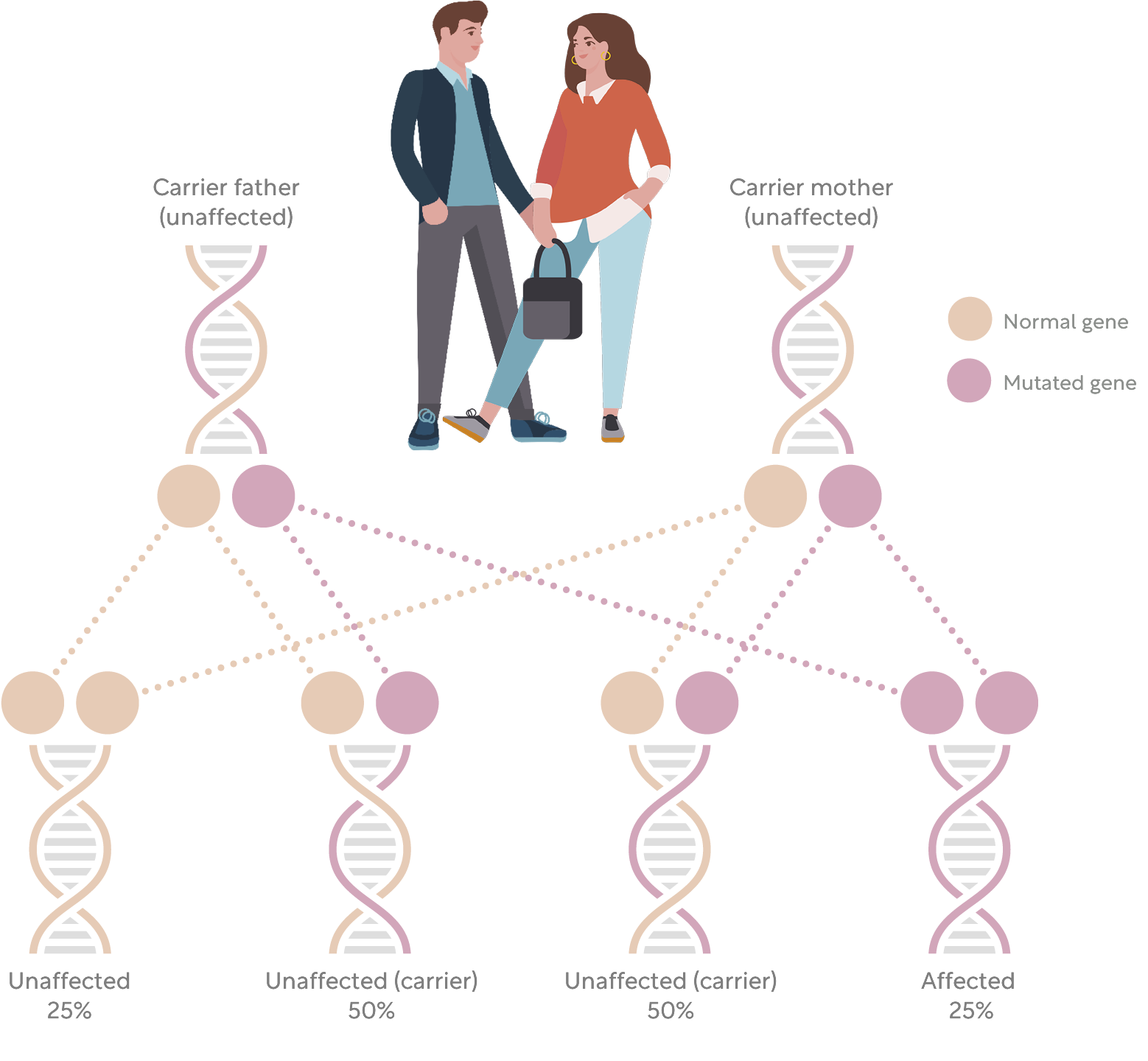Genetic Carrier Screening (CGT)
Planning and prevention are key to avoiding the transmission of genetic diseases.
What is it?
The “genetic matching” is a study performed on the progenitors and analyses their genes to identify mutations responsible for recessive diseases and linked to the X chromosome. First an individual screening of each one is made and then the information is crossed to see if there are coincidences in the mutations.
This technique allows for valuable information that will serve to minimise the risk of the future child inheriting a serious disease.
What does it consist of?
This is a very simple test that consists of taking a blood sample from each parent, to analyse the cell DNA for alterations.
The study is carried out using massive sequencing techniques (Next Generation Sequencing – NGS). We study autosomal recessive genetic diseases with greater prevalence.
When is it indicated?
- When there is consanguinity or some kind of kinship between the couple.
- When initiating an assisted reproduction treatment with one’s own gametes, especially if there is a family history of suffering or being carriers of any genetic disease.
- In cases where donor gametes are to be used in assisted reproduction treatment.
- In Next Fertility, we have the guarantees of a gamete bank that performs genetic study to all its donors.
- When the desire of the future parents is to maximise their chances of having “a healthy baby”.

What does genetic matching allow?
The main goal is to reduce the chances that the future baby will be born with some genetic diseases.
It’s important to understand that almost all people, even if we don’t know, are carriers of genetic mutations. But depending on how we inherit the altered gene, the mutation may go unnoticed or cause a disease.
There are two types of inheritance:
- Autosomal dominant inheritance: when the disease manifests, even if only one altered copy of the gene has been inherited from either the mother or the father.
- Autosomal recessive inheritance: to develop the disease it is necessary to have inherited both altered copies, both the father and the mother.
In the case that only an altered copy of a gene with recessive inheritance has been inherited, the person will not suffer the disease, he will only be a carrier, although he can also transmit the mutation to his offspring.
When two gametes of people who are carriers of the same mutation are fertilized, there is a 25% chance of having a child with that disease.

What do we do if there are
matching mutations?
In cases where coincidences are detected, there are alternatives to avoid transmitting the disease to children.
On the one hand, an In Vitro Fertilisation treatment could be performed, once the embryos are fertilised, embryonic genetic diagnosis techniques (PGT) are performed, to transfer only the embryos free of the mutations.

Do you have more questions? We will be delighted to assist you.
Get in touch with us and we will solve all your doubts about our treatments, techniques and promotions.



